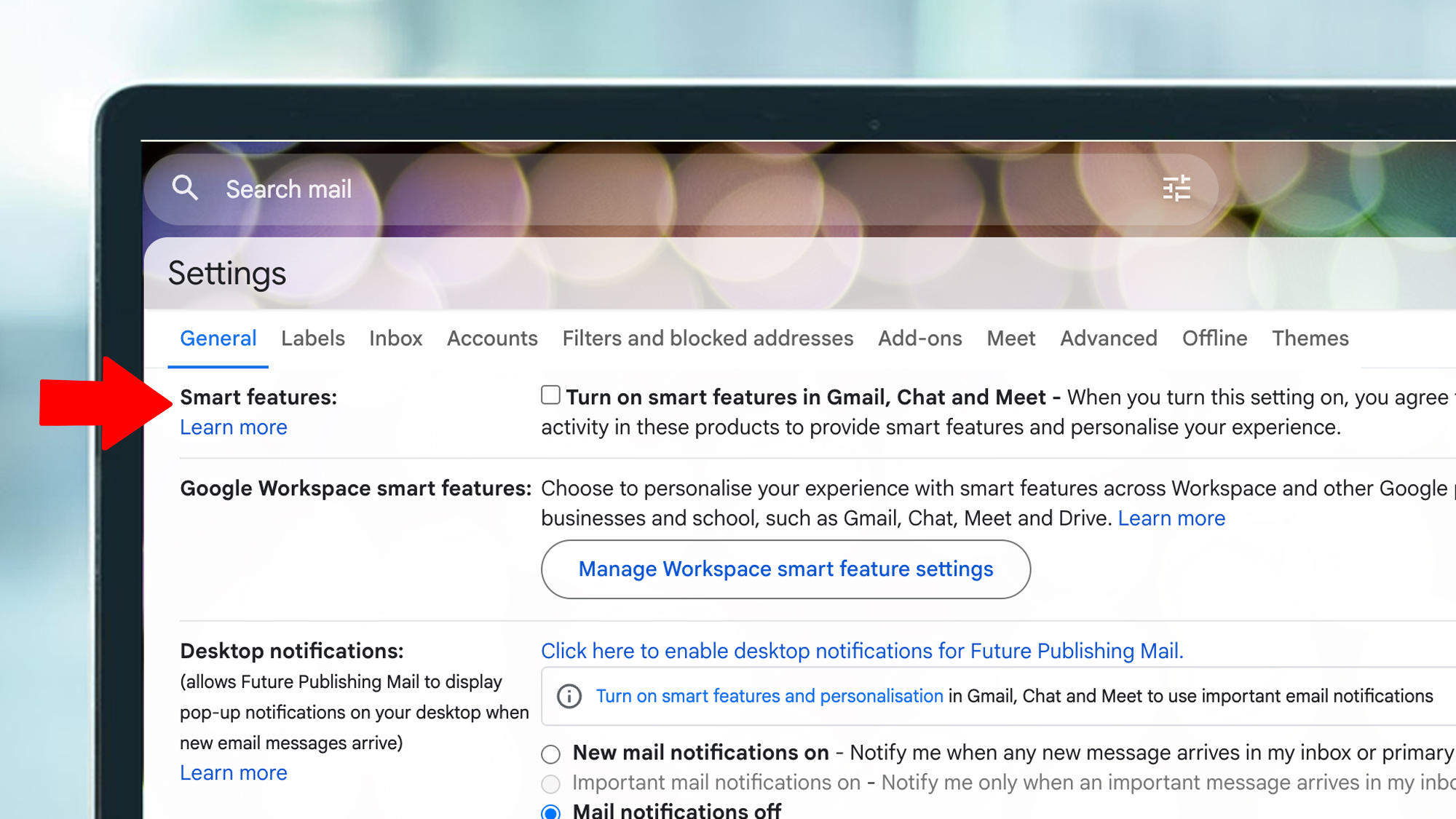Key Points
- Google calls reports that Gmail content trains Gemini AI “misleading”.
- Smart Features in Gmail are designed to personalize the experience, not to train AI models.
- Malwarebytes corrected its original article after reviewing Google’s documentation.
- A proposed California class‑action lawsuit alleges unauthorized use of Gmail data for Gemini.
- Google confirms Smart Features remain opt‑in and have not been changed without user consent.
- Users can check and adjust Smart Features settings in Gmail’s General settings.


A laptop screen showing Gmail settings and the Smart features option

Gmail dark mode
Google pushes back on Gmail‑Gemini training claims
Recent viral reports suggested that Google was using the contents of users’ Gmail accounts to train its Gemini artificial‑intelligence model. Google responded that the reports are “misleading” and that the company does not use Gmail content for Gemini training. A company spokesperson told The Verge that Google has not changed any user settings and that Gmail Smart Features have been available for many years.
What are Gmail Smart Features?
Google explained that Smart Features in Gmail, as well as in Chat and Meet, “use your content and activity in these products to personalize your experience in those apps.” Examples include automatic email filtering, smart compose suggestions, and summary cards that provide quick overviews of orders, events, and other information. These features are designed to improve usability, not to feed data into Gemini.
Malwarebytes corrects its original story
The original claim originated from a Malwarebytes article that warned users they could keep their data out of Gemini by disabling Gmail’s Smart Features. After reviewing Google’s documentation, Malwarebytes updated its piece, noting that the wording around Smart Features was vague and led many to assume a broader AI shift. The corrected article clarified that while Google scans emails to enable Smart Features, it does not use that content for Gemini training.
Legal context
At the same time, a proposed class‑action lawsuit in California alleged that Google gave Gemini AI access to Gmail, Chat, and Meet without proper user consent. Google’s statement reiterates that no such access for training purposes exists, emphasizing that Smart Features remain opt‑in for both Workspace and standard Gmail users.
User control and settings
Users can verify whether Smart Features are enabled by navigating to Settings > General in Gmail and locating the “Smart features” checkbox. Google says the feature should be off by default, though some users have reported otherwise. The company confirmed that the settings have not been altered without user action.
Implications for privacy
The episode highlights ongoing concerns about privacy and AI. While Google maintains that Gmail content is not being used to train Gemini, the controversy underscores the need for clear communication about how user data is employed in AI‑driven services.
Source: techradar.com
